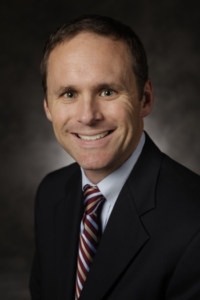This past weekend, over a hundred global OneMBA students from Europe, Hong Kong, Mexico, and the US descended upon Amsterdam. I say descended, because it’s not like a hundred plus executive MBA students come quietly into a city like Amsterdam. We’ve been here for about three days and are now headed to Istanbul to finish up our European residency. We’re not traveling to Amsterdam and Istanbul though to learn about Dutch tulips and Turkish carpets.
These trips are designed to get us out of the articles and text books and enable us to experience the global economy first hand. It’s an interactive experience where we attend lectures from political leaders, professors and business professionals, as well as visit local businesses. We meet and collaborate with our OneMBA counterparts from around the globe, and finally get to spend time in-person with our global teammates. Up to this point, our interaction with our global teammates has been limited to weekly video conferences. Much bonding occurs among the global teams through the toil and labor of three global projects, and now that the pressure of due dates has passed, we celebrate our success together – through boat rides on Amsterdam’s canals and dinners off Amsterdam’s brick streets.
Most of our discussions and lectures in Amsterdam centered around the European Union and its difficulties and future. Such discussions and lectures in a US classroom among US students with knowledge acquired only from articles and essays lacks the impact such discussions and lectures have when led by a European business professional or political leader with an audience of students from four continents. We spent much time discussing the sovereign debt crises and its role in the West’s current economic malaise. The conversations over breakfast or dinner with my global colleagues were a highlight of the residency. It was interesting to hear their perspectives on the EU’s problems. Some are resentful they’re funding the bailouts for countries whose irresponsible budgets created their insolvency. It was evident that such sentiments are wide spread in Europe causing talk of abandoning the Euro to be serious enough to concern EU leaders. On the other hand, I was speaking to some European colleagues who were more pragmatic about the sovereign debt crises. While not liking the situation, they viewed it as the only alternative to a total collapse.
Our time in Amsterdam was capped off with a visit from former Dutch prime-minister, Jan Peter Balkenende (2002-2010). Talk about first-hand knowledge and expertise of doing business in the EU. The prime minister first asked for us to give him topics and questions we wanted him to address and then wrote them all down (there were more than a dozen). He then spoke extemporaneously for over an hour covering all of the questions and issues we raised, from sustainability to the debt crises to the future of the EU. Coming from a country where the teleprompter often tells our political leaders what to say this was quite refreshing and impressive.
U.S. citizens in general are very U.S. centric, and these international residencies serve to awaken our awareness and understanding of global issues. Next time I see or hear news regarding Europe, I will be engaged much quicker and have a new context and perspective through which to see and listen. I’ve always appreciated that what happens in America matters in Europe, but after four days in Europe I appreciate more that what happens in Europe matters in America.
Lee Lowder is an attorney who is pursuing his MBA at the University of North Carolina’s Kenan-Flagler’s Business School. HIs previous posts:
Introducing Lee Lowder, A Lawyer Working On His EMBA






Questions about this article? Email us or leave a comment below.